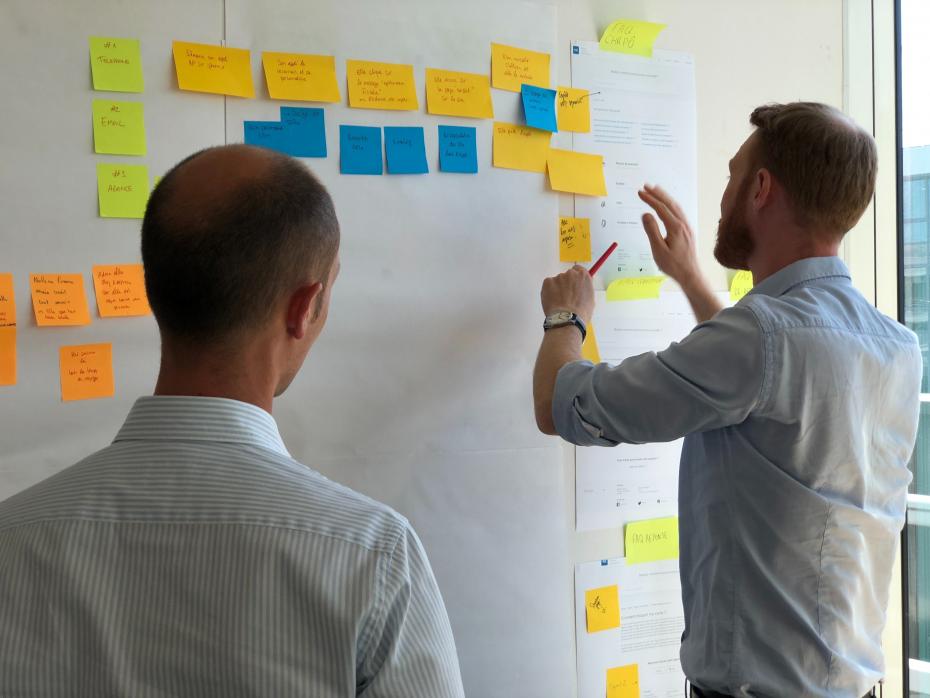Faculty have a marked influence on students’ learning and academic success through their teaching. During the shift from face-to-face to online learning, the importance of the faculty role has become even more salient, with students looking to their instructors for stability, leadership and support during uncertain times.
Therefore, it is important that the needs and attitudes of faculty are considered alongside those of students when thinking about online learning. For teachers to be successful in supporting their students, they need to have adaptive thought processes and feel well themselves. However, the ongoing challenges posed by the pandemic have not made this an easy feat, and while some faculty seem to cope well, others barely manage to stay afloat.
So what contributes to differences in thriving or surviving during challenging circumstances?
We conducted a longitudinal study to answer this question, following the achievement goal approach to motivation. This posits that the achievement goals that individual teachers strive for affect their perceptions of teaching situations and, consequently, their related behaviours, cognitions and emotions. Achievement goals can thus be expected to act as protective or risk factors that may explain differences in professional experiences throughout the pandemic.
To investigate this, we measured 80 faculty members’ achievement goals prior to the Covid-induced shift to online teaching, as well as their attitudes, burnout and engagement levels, and 703 students’ perceptions of their teaching quality during the first semester of online teaching.
We found that faculty motivated by “learning goals”, which focus on gaining knowledge and developing new skills, perceived the shift to online teaching in a positive light and as a useful challenge.
Faculty who demonstrated “avoidance goals”, which involve trying to avoid looking bad and trying get by with minimum work, perceived the shift to online teaching as a threat and experienced more professional stress, as well as worse evaluations of their teaching quality.
How can we use these findings to better support faculty?
Striving for learning goals
Learning goals can be considered beneficial for faculty when it comes to handling challenging circumstances. Learning goals encompass a focus on gaining knowledge and developing competencies, which in turn supports the perception of challenges or difficulties as learning opportunities.
For example, when given the task of altering teaching material to work online, instead of viewing this as an added frustration, faculty should challenge themselves to think of it as an opportunity to learn how to deliver their lessons in a novel format that will provide them with more flexibility in future teaching.
Faculty should actively remind themselves that the learning process is not always linear, and that ups and downs are natural. Thus, they should focus on reframing their thoughts about teaching tasks with a learning-oriented mindset and asking themselves what knowledge and benefits can potentially be gained. They should also accept and encourage personal mistakes and failures, which constitute important steps in the learning process.
Reducing avoidance goals
Faculty with performance avoidance goals, which involve striving to avoid “looking bad”, and work avoidance goals, which involve striving to get through the day with minimal effort, perceive online teaching as a greater threat, resulting in negative consequences. Avoidance-oriented efforts should be actively reduced whenever possible.
For faculty who are driven to succeed out of a fear of being perceived as incompetent, efforts should be made to reframe thought processes towards “seeing the good” in making mistakes and acknowledging that experiencing problems and asking for help are often beneficial in the long run. Faculty should recognise that trying to get by with as little effort as possible will ultimately lead to negative outcomes and should instead search for more adaptive coping mechanisms.
Making use of resources and professional development opportunities
It is important for universities to support their faculty, by providing courses and resources to improve online teaching skills, for example.
Such opportunities can help reduce the perceived threat associated with online teaching by providing more exposure to it, and self-confidence in related topics. The training opportunities could place an emphasis upon the relevance and importance of pursuing learning goals and reducing avoidance goals.
Further research is needed, but these findings and the resulting advice offer some initial ideas to help faculty adaptively navigate future uncertainties and upheaval.
Martin Daumiller is an assistant professor, Raven Rinas is a research associate and Markus Dresel is a professor, all in the department of psychology at the University of Augsburg.
Julia Hein is a research assistant, Stefan Janke is a postdoc and Oliver Dickhäuser is a professor, all in the department of educational psychology at the University of Mannheim.
This advice is based on the research paper “Shifting from face-to-face to online teaching during COVID-19: The role of university faculty achievement goals for attitudes towards this sudden change, and their relevance for burnout/engagement and student evaluations of teaching quality”
If you would like advice and insight from academics and university staff delivered direct to your inbox each week, sign up for the Campus newsletter.




comment